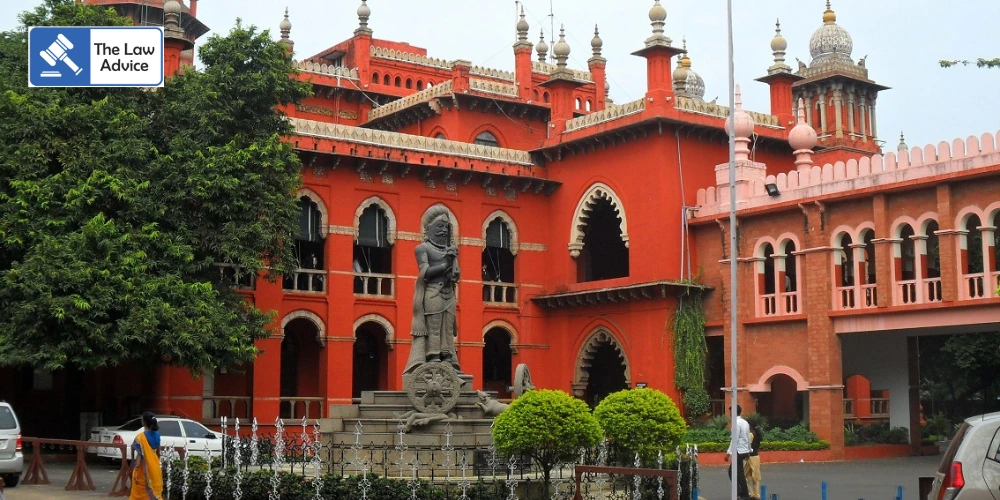The Madras High Court has refused to transfer the investigation into the dowry death of 27-year-old Rithanya, who died by suicide in July this year, allegedly due to sustained dowry harassment from her husband and in-laws. Instead, the Court has directed the Superintendent of Police, Tiruppur District, to personally monitor the ongoing probe to ensure fairness and impartiality.
The matter came before Justice Satish Kumar on a petition filed by Annadhurai Ramasamy, father of the deceased, who sought that the case be handed over to an independent investigating authority such as the State Crime Investigation Department (CB-CID), the Central Bureau of Investigation (CBI), or a Special Investigation Team (SIT) headed by a retired judge. He argued that the local police were deliberately weakening the case under political influence to protect the accused.
Rithanya had married Kavin Kumar around three months before her death. According to her father, she repeatedly complained of mental and physical abuse at the hands of Kavin and his family over dowry demands and related issues. On July 13, she died by suicide.
Prior to her death, Rithanya had sent voice recordings to her father, alleging harassment by her husband and in-laws. Based on these recordings, the Cheyur police registered a case under Section 194(3) of the Bharatiya Nagarik Suraksha Sanhita (BNSS) [suicide by a woman within seven years of marriage]. Soon after, Kavin and his father Eswaramoorthy were arrested for offences under Section 85 BNS [cruelty by husband or relatives of husband] and Section 108 BNS [abetment of suicide].
In his plea, Annadhurai contended that the investigation was marred by serious lapses and bias:
• The police failed to invoke offences relating to sexual violence and provisions of the Tamil Nadu Prohibition of Harassment of Women Act.
• Crucial digital evidence, particularly data from Kavin’s mobile phone, had been ignored.
• The selective handling of evidence, he argued, suggested an attempt to shield Kavin and his family due to their political connections.
The State strongly denied allegations of bias. It submitted that the investigation had been carried out in an impartial and professional manner. Audio files from both Rithanya’s and Kavin’s phones had already been sent for forensic examination, and the results were awaited. The State also assured that additional charges, if warranted, would be incorporated at the time of filing the final chargesheet before the Magistrate.
After hearing both sides, the Court observed that substantial progress had already been made in the investigation and that transferring the probe at this stage would not serve any practical purpose. However, acknowledging the petitioner’s concerns about investigative lapses, Justice Satish Kumar directed the Superintendent of Police, Tiruppur, to oversee the ongoing investigation to ensure fairness and accountability.
The Court, therefore, disposed of the petition without ordering transfer of the case.
It may be recalled that in August 2025, the Madras High Court had granted bail to Rithanya’s husband Kavin, his mother Chitra Devi, and father Eswaramoorthy.
Case Title: Annadhurai Ramasamy v. The Chief Secretary
